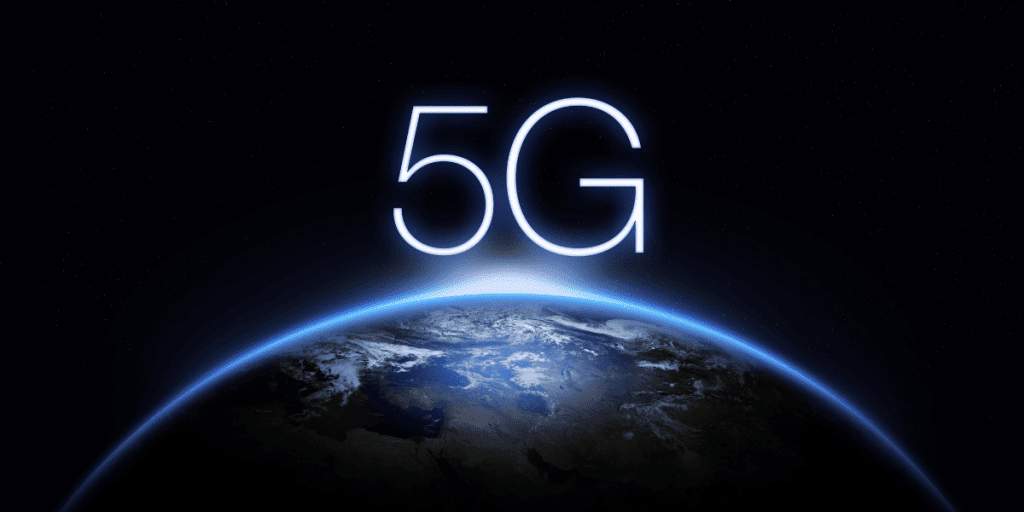Despite the controversy and confusion surrounding its underlying technology and implementation, 5G wireless is already up and running in several countries across the globe. But where is it available, exactly? That’s what we’ll be examining in this article, together with some of the opposition and outright banning of 5G technology in various nations.
Table of Contents
ToggleWhich Countries Have 5G?
The California-based network testing company Viavi Solutions published a report in February 2020 titled The State of 5G Deployments, which stated that 5G was at least partially available in 378 cities, in a total of 34 countries. These figures were calculated as of January 2020, drawing on data from publicly available sources, including company websites, press announcements, industry trade media, and local newspapers.
Broadly, the EMEA region (Europe, the Middle East, and Africa) is top of the list with 168 cities with 5G networks. Asia ranks second with 156 cities, while the Americas in third has it in 53 cities. The 5G rollouts making the list include both mobile and fixed wireless networks.
The full Viavi list comprises:
Europe
- Austria
- Estonia
- Finland
- Germany
- Hungary
- Ireland
- Italy
- Latvia
- Lithuania
- Monaco
- Poland
- Romania
- San Marino
- Spain
- Sweden
- Switzerland
- UK
North and South America
- Suriname
- Trinidad & Tobago
- US
- Uruguay
Middle East and Africa
- Bahrain
- Kuwait
- Lesotho
- Oman
- Qatar
- Saudi Arabia
- South Africa
- United Arab Emirates (UAE)
Asia and Oceania
- Australia
- China
- Maldives
- New Zealand
- South Korea
Countries Where 5G Is on the Way
Since February 2020, the list of 5G network countries has expanded slightly to include Canada, Hong Kong, and Thailand.
There are several countries with it on the agenda for future development or adoption. In Puerto Rico, for example, wireless provider Claro began testing 5G in 2019. The first 4.5G site in Honduras arrived in mid-2020 as the first phase in a deal with Ericsson that “includes the provision of a 5G-ready multi-standard network.”
Ericsson has also partnered with Entel, the largest telecommunications company in Chile, to deliver a 5G wireless service that should arrive in the country no later than 2021. Likewise, Argentina’s Movistar and Ericsson tested 5G systems in 2017 that will likely roll out to customers around the same time that Chile sees it.

Brazil and Colombia are on the verge of their rollout, with Brazil’s Vivo network becoming available in eight cities in July 2020, and the Claro network launching in São Paulo and Rio de Janeiro the same month. Colombia’s largest telecommunications company, Telefónica Telecom, plans to run trials throughout 2020, possibly launching for customers toward the end of the year, or early in 2021.
SETAR, the leading communications provider on the island of Aruba, has entered a partnership with Nokia to deliver full 5G coverage on the island by 2022.
In Japan, NTT DOCOMO, the nation’s largest wireless carrier, has been studying and experimenting with it since 2010. The company launched pre-commercial 5G services in September 2019, before officially launching on March 25, 2020.
India’s Department of Telecommunications plans to adopt 5G this year, with services to come from mobile network providers like Reliance Jio and Bharat Sanchar Nigam Limited (BSNL). Elsewhere in the country, Cavil Wireless is currently assembling a 5G test network.
Vietnam’s state-owned and largest telecommunications company, Viettel, ran 5G trials in 2019 and plans to have a network operational before the end of this year. In Thailand, Advanced Info Service (AIS), the country’s largest mobile phone operator, launched it in 2020, which is currently available in over 70 provinces.
Chunghwa Telecom, the largest telecom company in Taiwan, launched 5G on July 1, 2020. The Malaysian Communications and Multimedia Commission (MCMC) expects commercial deployment in Malaysia by the third quarter of 2020.
In Africa, the Nigerian Communications Commission (NCC) indicates that 5G is expected to roll out sometime in 2020. Telecommunications company Inwi, which covers over 90% of the country with mobile internet access, is bringing 5G to Morocco. Safaricom is slated to launch it in Nairobi, Kenya, in 2020. Meanwhile, in Madagascar, 5G arrived in Antananarivo and Toamasina on June 26, 2020, through network provider Telma.
5G rollouts are well underway in several parts of Europe. Telenor, the biggest telecommunications operator in Norway, launched it in March 2020, following early testing from 2017. Telekom Slovenia launched that nation’s 5G network on July 23, 2020.
In partnership with Samsung, Russia’s largest mobile operator, Mobile TeleSystems (MTS), opened a private 5G network in early 2020. 5G networks are projected to cover over 80% of the Russian population by 2025.
Countries Where 5G Is Banned
Though rumors abound concerning the health risks of 5G, most nations appreciate the fact that they truly can’t afford to miss out on the quantum leap in communications technology that it represents. As such, outright bans don’t really come into the picture.
Instead, the focus has been on the downside associated with some of the enablers of 5G – specifically, China’s Huawei Technologies, one of the world’s largest providers of telecommunications equipment, networking gear, and smartphones. Numerous nations allege that the company’s products may contain security holes that China’s government can use for spying purposes. In addition, some countries allege that Huawei steals intellectual property from foreign technology companies.
Despite the fact that Huawei is willing to sign “no-spy” agreements with governments, global discussion about the company’s alleged business practices has intensified in recent months, fueled by the ongoing trade war between the USA and China, and the general rush by countries and commercial organizations to implement 5G wireless network rollouts.
As a result, several countries, regions, businesses, and organizations are banning, debating, or rethinking their business relationships with Huawei. These include:
Australia
Australia has blocked Huawei and ZTE from providing equipment for its 5G network. In addition, Australian government officials have advised their counterparts in India to ban Huawei from supplying parts for the rollout of a high-speed telecommunications network.
Brazil
While preparing to auction bandwidth for 5G mobile data, the Brazilian telecommunications regulator is leaving any final decision on the security risks of using Chinese technology to the president’s national security advisor.
Czech Republic
A warning issued by the cybersecurity agency of the Czech Republic about the risk the company poses to the nation’s critical infrastructure has prompted threats of legal action from Huawei.
Europe
The European Union won’t explicitly ban Huawei or other 5G equipment vendors, but will leave final veto on such decisions to its individual member states.
5G is Banned in India
Following recent border clashes with its Chinese neighbor, India may advise local telecommunications operators to shun equipment made by Huawei ZTE Corp.
Italy
Despite being shut out of a recent tender to supply new generation 5G technology, Huawei is still working with Telecom Italia.
United Kingdom
UK Prime Minister Boris Johnson is set to ban Huawei from Britain’s 5G network and has ordered Huawei equipment to be purged completely from Britain’s 5G network infrastructure by 2027.
5G is Banned in United States
In May 2020, the Trump administration moved to block shipments of semiconductors to Huawei Technologies from global 5g network countries chipmakers. As of July 9, 2020, the US administration plans to finalize regulations that will bar the US government from buying goods or services from any company that uses products from five Chinese companies including Huawei, Hikvision, and Dahua.
FAQ
A: 5G is the fifth generation of wireless technology, offering faster speeds, lower latency, and greater capacity compared to previous generations. The availability of 5G varies by country, region, and service provider. As of my knowledge cutoff in September 2021, 5G networks have been deployed in many countries worldwide, including the United States, South Korea, China, the United Kingdom, Germany, Australia, and more. It’s important to check with local service providers for the specific availability in your area.
A: Several countries were early adopters of 5G technology. South Korea was one of the first countries to launch commercial 5G services in April 2019. The United States, China, and Japan also made significant strides in deploying 5G networks and services early on. Other countries, such as the United Kingdom, Germany, Australia, and Switzerland, have also been actively rolling out 5G networks.
A: The availability of 5G in rural areas varies by country and service provider. In some cases, 5G networks may initially be deployed in more densely populated urban areas before expanding to rural regions. However, the deployment of 5G in rural areas is a focus for many countries to bridge the digital divide and provide enhanced connectivity. Service providers and governments are working to extend 5G coverage to rural communities, but the timeline and availability may differ depending on the specific region.
A: To check if 5G is available in your area, you can visit the websites or contact the local service providers in your country. They typically provide coverage maps or search tools where you can enter your location and check the availability of 5G networks. Additionally, you can check with local retailers, inquire with your mobile service provider, or explore official government sources that provide information on 5G deployment in your region.
A: 5G technology brings several benefits, including faster download and upload speeds, reduced latency, and increased network capacity. It enables faster streaming, high-quality video calls, and improved online gaming experiences. 5G also has the potential to drive advancements in various industries, including autonomous vehicles, healthcare, Internet of Things (IoT), and smart cities, by enabling faster and more reliable connectivity, real-time data processing, and enhanced communication between devices.





